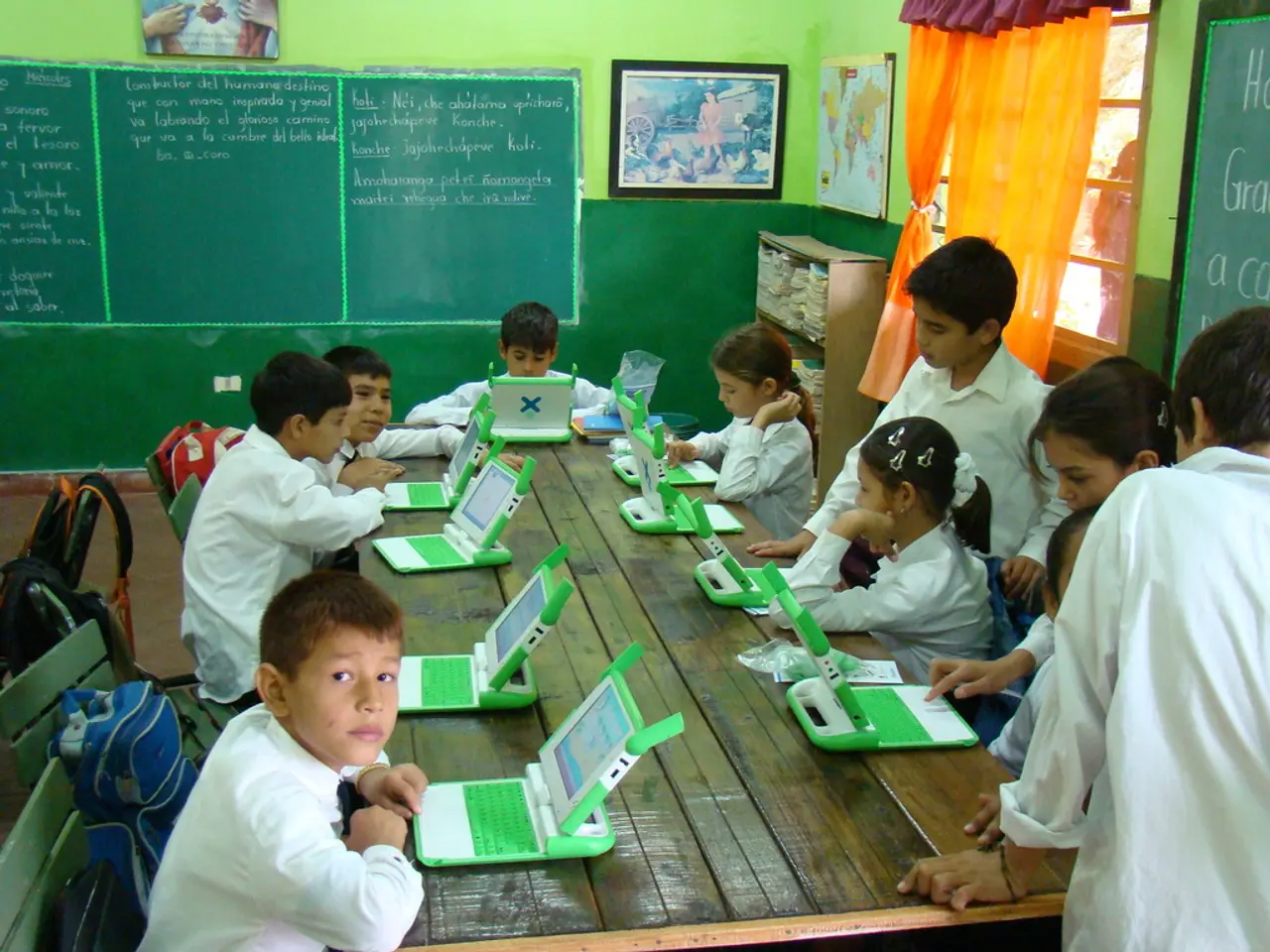Digital Security Weaknesses in Africa: Addressing the Role of Humans in Cyber Protectiveness
In the rapidly evolving digital landscape of Africa, a focus on enhancing cybersecurity defenses has become increasingly important. Recognising the critical role of human resources in this battle, strategies are being developed to equip employees with the necessary skills and knowledge to combat cyber threats effectively.
Shared Learning Platforms and Collaborative Efforts
Africa-focused cybersecurity forums and workshops serve as valuable platforms for shared learning. These events allow participants to exchange best practices and new ideas, fostering a unified front against global cyber threats. Collaboration between public and private entities, international partnerships, and shared expertise are crucial for building a robust cybersecurity defense framework in Africa.
Targeted and Practical Training Programs
Current strategies and best practices addressing the human element in African cybersecurity focus heavily on employee education, training, and collaborative efforts that are culturally and regionally tailored, skills-driven, and practically oriented. Key approaches include targeted, role-based cybersecurity education and training, hands-on, certification-driven programs, workforce development aligned with market needs, and institutionalising incident reporting and feedback loops.
Role-Based Cybersecurity Training
Instead of generic awareness, programs now tailor training content to employees' specific roles and cyber risk exposure, ensuring relevance and practical impact in daily work. This adaptive security awareness training builds a human defense layer that actively reduces risk, moving beyond just awareness to resilient behavior.
Hands-On, Certification-Driven Programs
Initiatives like Nigeria’s Hack365 Global and Rwanda’s leading cybersecurity institutes provide hands-on technical modules combined with international certifications (CEH, CISSP, CompTIA Security+). These programs blend theoretical knowledge with real-world application, internships, and entrepreneurial mentoring to embed skills and improve job prospects in the African digital ecosystem.
Workforce Development and Market Needs
Training providers such as Edoxi in Rwanda and Axia Africa offer internship-backed learning and projects designed to close the gap between academic knowledge and industry requirements, preparing employees to actively defend organisations’ infrastructure against increasing cyber threats and digital joblessness.
Incident Reporting and Feedback Loops
African organisations develop clear, easy-to-follow cyber incident reporting structures, supported by frequent simulation exercises that foster employee trust, ensure timely communication, and enable rapid frontline response.
Contextualised Training and Cultural Awareness
Effective cybersecurity training in Africa accounts for the unique regulatory, cultural, and operational realities of its diverse regions, customising strategies that resonate contextually rather than applying imported one-size-fits-all models.
Collaborative Ecosystems and Digital Sovereignty
Increasingly, training centres like Serianu and Edoxi collaborate with financial institutions, governments, and the private sector to deliver simulation-based cyber range labs and policy training tailored to sector-specific threats, fostering shared defense capabilities and workforce readiness. By cultivating a qualified local cybersecurity workforce, these programs also aim to reduce dependency on external solutions, reinforcing Africa’s ability to protect its critical infrastructure and digital economy autonomously.
A Vigilant Workplace Culture
A culture of vigilance within the workplace is being fostered through cybersecurity training initiatives. By tackling the human element head-on, Africa can protect its digital assets and pave the way for prosperous and secure digital transformation. The journey towards fortified digital defense in Africa requires stakeholders to prioritise the human element and integrate it with existing and future technological advancements.
In conclusion, best practices emphasise integrated, practical training that equips employees with relevant skills, aligns with local realities, fosters collaboration, and promotes continuous engagement in cybersecurity. This human-centered approach transforms employees from perceived security liabilities into vital frontline defenders against evolving cyber threats in Africa’s fast-growing digital landscape.
- To combat cyber threats effectively, Africa requires strategy and training that are culturally and regionally tailored, such as role-based cybersecurity education and training, hands-on, certification-driven programs, and workforce development aligned with market needs.
- African organizations and training providers, like Serianu and Edoxi, collaborate with various entities to deliver cyber range labs and policy training, aiming to reduce dependency on external solutions and reinforce Africa's ability to protect its critical infrastructure and digital economy.
- To protect digital assets and ensure a prosperous and secure digital transformation, a culture of vigilance within the workplace must be fostered through ongoing cybersecurity training initiatives, transforming employees intofrontline defenders against evolving cyber threats.




